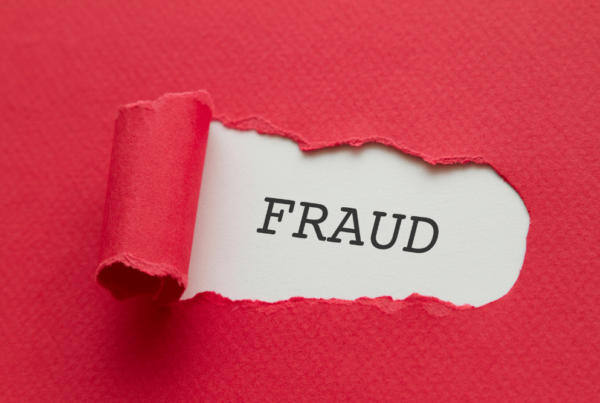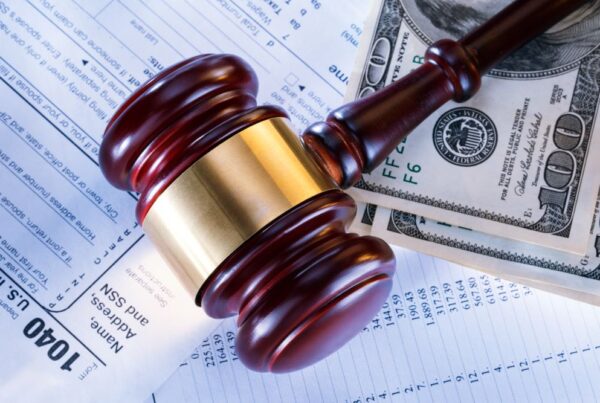The term “white collar crime” was first coined by the sociologist and criminologist Edwin Sutherland. In 1939, Sutherland proposed usage of the term to the American Sociological Society, as a way to describe crimes committed by persons of respectability and high social status. The white collar denotation stood in contrast to the traditional concept of “street crime”, which was seen as being committed by the “blue collar” working class.
Outdated notions of class aside, white collar crime today is a serious offense, capable of taking many forms and being perpetrated by virtually anyone in society – and not exclusively those with high social status.
In order to better comprehend what white collar crime actually is, its characteristics, potential penalties, and impact, we’ve prepared this guide to understanding white collar crime.
What is White Collar Crime?
At its most essential definition, white collar crime is a type of non-violent crime where the perpetrator uses fraud, deception, or other illegal means for financial gain. White collar crime is often committed by those in professional settings, such as business, finance, or government, but white collar crimes can be perpetrated by anyone.
Despite these crimes being non-violent in nature, white collar crimes are not victimless. They can cost organizations hundreds of thousands of dollars, dilute public trust in institutions, and financially destroy its victims.
What Type of Crimes Are Considered White Collar Crimes?
White collar crime can take on a very broad range of forms, though they nearly always involve some sort of scheme or manipulation for financial gain.
Here is a look at some of the most common forms of white collar crime we defend against at Azhari LLC:
Corporate Fraud
When an organization, or an individual within an organization, engages in dishonest or manipulative practices, it can constitute corporate fraud. Some examples include falsifying financial records, leveraging confidential information for personal gain, or even disguising flaws or defects in a product from the public.
Identity Theft
When personal information belonging to another person is used without permission, this may constitute identity theft. Identity thieves can use that personal information to open new accounts or lines of credit, make purchases, and even apply for loans under the victim’s name.
Securities and Commodities Fraud
Attempts to manipulate stock markets or other investment markets are a form of white collar crime known as securities and commodities fraud. This can also include pyramid and ponzi schemes, which attempt to generate returns for early investors using money taken from later investors.
Embezzlement
Embezzlement occurs when a person in a position of trust or power abuses that position to engage in fraudulent activities that benefit them personally. This can include misappropriating funds into personal accounts, falsifying expenses, or fabricating records.
Tax Evasion
Tax evasion is a prominent form of white collar crime that attempts to minimize tax obligations. Tax evasion can involve underreporting income, claiming false deductions, or attempting to hide sources of income. Tax evasion can be committed by both individuals and organizations.
Bribery
Bribery occurs when money, gifts, or other favors are offered to a public official in exchange for favorable treatment of some kind. This can manifest as attempts to pay a public official to secure a license, obtain a contract, or gain special treatment.
Health Care Fraud
Health care fraud can include things like billing for medical procedures that were never provided, falsifying patient records to justify unnecessary treatments, and even obtaining and selling prescription drugs illegally.
Cybercrime
With the increased role of technology in our everyday lives comes the risk of cybercrimes. Cybercrimes are a form of white collar crime that use fraudulent emails, text messages, phone calls and other technological means to defraud people out of money or assets. A common example of cybercrime is known as phishing, where a fraudulent email or message purportedly from a trusted person or organizations is used to trick people into sharing sensitive information.
Cryptocurrency Fraud
With the rise of cryptocurrencies, cryptocurrency fraud is another form of white collar crime that targets victims with fake investment schemes designed to steal cryptocurrency. Crypto scams often use the promise of large returns to convince victims to buy crypto and transfer it into an investment account, or may even use an apparent celebrity endorsement to manipulate victims into sending crypto they claim they can multiply.
Under What Statutes Are Alleged Offenders Charged?
White collar crimes can be charged under several different federal statutes. Some of the most commonly used statutes include:
- 18 U.S.C. § 1961 et seq. – The Racketeer Influenced and Corrupt Organizations Act: RICO is a tool used to target criminal organizations suspected of fraud, extortion, money laundering and other criminal offenses.
- 15 U.S.C. § 78a et seq. – The Securities Exchange Act of 1934: Focuses on protecting exchange markets against fraud, insider trading and other forms of manipulation.
- 15 U.S.C. § 7201 et seq. – The Sarbanes-Oxley Act of 2002: Imposes strict accounting and financial reporting standards on publicly traded companies.
- 18 U.S.C. § 1343 – Wire Fraud Statute: Regulates and protects against schemes involving communications systems such as telephone, email, and text messages.
- 18 U.S.C. § 1341 – Mail Fraud Statute: Aims to prohibit schemes involving the US mail.
- 18 U.S.C. § 1344 – Bank Fraud Statute: Prohibits schemes intending to defraud financial institutions.
- 31 U.S.C. § 3729 – False Claims Act: Allows individuals to sue on behalf of the government for false claims related to government programs.
- 15 U.S.C. § 78dd-1 et seq. – Corrupt Foreign Practices Act: Seeks to prohibit US companies from attempting to bribe or influence foreign officials.
- 26 U.S.C. § 1 et seq. – Internal Revenue Code: Imposes penalties for tax related offenses.
What Are The Possible Penalties for White Collar Crimes?
The severity of penalties imposed for white collar crimes varies based on the nature of the crime, but offenders can be prosecuted at both the state and federal levels.
Crimes that are committed solely within the boundaries of the state are prosecuted at the state level, and will likely see lesser penalties. However if the crime crosses state borders, or involves a federal agency, then the crime will be charged at a federal level. You can expect penalties to be much greater when the case is prosecuted federally.
State Level
At the Illinois state level, some white collar crimes may be categorized as misdemeanors. Misdemeanors may include up to a year in jail and fines of $2,500 for crimes like theft by deception. Other crimes, like computer fraud, are considered felonies. Felonies carry substantial prison time, and fines up to $25,000.
Federal Level
The federal justice system takes white collar crimes extremely seriously, with federal agencies like the IRS, SEC, and FBI taking on the most complex and large scale crimes.
Crimes such as bank fraud, securities fraud, and others where huge financial losses occur can carry decades-long prison sentences.
In addition to prison time, white collar crimes also carry significant financial penalties. Fines are often proportionate to the scope of the crime, with fines in the millions of dollars being dolled out for the biggest offenders. In some cases, perpetrators may also be required to pay restitution to their victims.
The Impact of White Collar Crimes
Because white collar crimes are non-violent in nature, it’s easy to assume that they are victimless crimes – or that only big corporations who have money to burn are the victims. However that is simply not the case.
White collar crimes can devastate every day people whose life savings are tied up in stocks or other investments. It can cause entire corporations to collapse, with their reverberations being felt throughout the global economy.
Not only that, but white collar crime erodes public trust in institutions. When corporate leaders or government officials are seen engaging in these types of crimes, it can cause people to lose faith in these systems. Not only that, but when people in these trusted positions abuse their power for personal gain, it furthers economic disparity and social inequality.
Prominent Examples of White Collar Crime
Since Sutherland first invoked the term over 85 years ago, there have been no shortage of high profile examples of white collar crime. Here are some of the most infamous:
The Enron Corporate Fraud Scandal
The Enron scandal rocked the world in 2001, when the company filed for bankruptcy after it was revealed that company executives had pocketed billions for themselves, while using financial manipulation to hide billions of dollars in debt. The accounting firm Arthur Andersen who handled Enron’s book keeping was also implicated in aiding Enron’s fraud, and was ultimately dissolved. The scandal caused Enron employees and shareholders to lose billions when the company’s stock plummeted, ultimately leading to regulatory changes like the Sarbanes-Oxley Act to help protect investors from fraudulent financial reporting by corporations.
Bernie Madoff’s Ponzi Scheme
In 2008 it was revealed that an enormous hedge fund managed by Bernard L. Madoff Investment Securities, LLC was in reality an enormous pyramid scheme. Madoff had obtained investments from thousands of clients, promising low risk and steady returns. However Madoff was using the funds from new investors to pay off the earliest investors, creating a classic ponzi scheme on an enormous scale. As the 2008 financial crisis set in, Madoff’s scheme began to unravel as investors sought to withdraw their funds from his fund. This pulled the rug out from under the scam, causing untold sums to be lost by its investors. Madoff himself was sentenced to 150 years in prison, while thousands of investors including individuals, charities and non-profits lost everything.
Martha Stewart’s Insider Trading Case
Internationally known TV personality Martha Stewart was found guilty of perjury and obstruction of justice in 2004, related to accusations of insider trading. In 2001, Stewart sold nearly 4,000 shares of stock in biomedical company ImClone after allegedly receiving an insider tip, just one day before the organization’s stock plummeted. The timing of the sale drew the attention of federal investigators. While the charges of securities fraud were thrown out, Stewart still faced five months in prison, five months of house arrest, and a two year probation term for her part in lying to investigators.
In Need of a White Collar Criminal Defense Lawyer?
White collar crime is a serious offense, but it is possible to mount a serious defense with help from the right attorney. If you’ve been accused of committing any form white collar crime, you must seek legal counsel immediately.
Experience matters. Sami Azhari is an experienced white collar criminal defense lawyer, and the principal attorney of Azhari LLC. With 17 years of experience defending his clients in white collar crimes cases, Sami knows how to vigorously defend his clients in court. He will fight tirelessly for your rights, and secure the best outcome for your case.
Contact us today for a free case consultation, and let us fight for your rights together.






